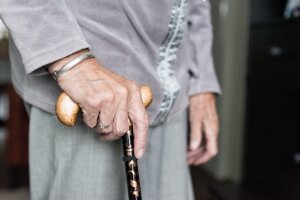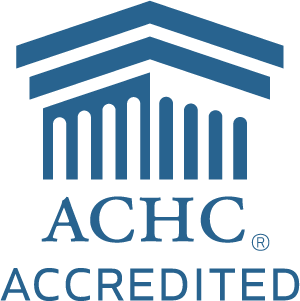Diabetes affects up to one in four elderly adults and is the second leading diagnosis that results in home health referrals for elderly patients. Caregivers should know the signs and symptoms of diabetes complications. Usually, adults over age sixty-five have also been diagnosed with other chronic condition(s) which can make the detection and treatment of this systemic blood glucose and insulin imbalance more complex. The onset of diabetes can be drawn out, and symptoms can manifest in different ways depending on each unique case.
Some specific symptoms of diabetes that CNAs and in-home health caregivers can watch for in elderly patients include frequent urination, extreme thirst or hunger, blurred vision, unusual exhaustion, irritability, and numbness or tingling in extremities. These signals may not present at the same time, and some not at all, so keeping detailed records of the patient’s vitals and any other observations can help detect prediabetes or diabetes and promote early treatment.
Complications
Elderly patients with diabetes can often experience common complications that manifest in different ways. These factors often overlap and fluctuate, however, complications can often be anticipated, managed, or avoided with education and frequent assessments by a medical professional.
 Falls are a big risk, due to complications like low blood sugar. CNAs and home health caregivers should watch closely for any signs or symptoms of low blood sugar. Ensuring that the patient’s environment is easy to navigate is another way to help prevent falls and possible injuries. Medication interactions are always a consideration that caregivers should monitor, as some prescriptions can induce low blood sugar or have other side effects.
Falls are a big risk, due to complications like low blood sugar. CNAs and home health caregivers should watch closely for any signs or symptoms of low blood sugar. Ensuring that the patient’s environment is easy to navigate is another way to help prevent falls and possible injuries. Medication interactions are always a consideration that caregivers should monitor, as some prescriptions can induce low blood sugar or have other side effects.
The risk of heart attacks and strokes increases for patients with diabetes, especially patients who are over 65. It is important to monitor and regulate blood pressure and cholesterol levels. Movement and exercise, as able, as well as modifications to diet, along with medications, can help manage these conditions.
Neuropathy can lead to weakness in the hands and feet. CNAs and home health care providers should do regular foot and ankle exams and take extra precautions like checking for correct fit or small objects in their patient’s shoes. This can help to avoid calluses, wounds, and foot ulcers.
Retinopathy is another complication that can lead to blindness. Blurred vision and seeing spots are symptoms to watch for. Regular vision checkups are also very important.
Depression symptoms are common among elderly patients with diabetes. Paired with being prone to memory loss and possible dementia onset, medication regimens and insulin checks must be simplified. CNAs and home health care providers must make sure the most updated written dosage and schedules for treatments are easy to locate and understand.
Positive Outcomes
Keeping detailed records can help to keep the patient’s physician informed between visits about any changes so that he or she can make effective medication and treatment recommendations. Once again, home health caregivers should assess their elderly patients regularly for signs of complications.
Working together as a team with families and medical professionals will help CNAs and home health care providers administer optimal care for their elderly patients. Adjustments can be made as needs change to ensure symptoms are lessened and quality of life for the patient is the caregivers’ focus.
Allcare Home Health Agency, Inc. offers quality in-home diabetes assistance in the Raleigh/Durham area. Call (919) 301-0236 today to schedule an assessment for your home health care needs.
References:
Assisted Living for Diabetics & Seniors with Diabetes
Diabetes in Older Adults – Deepashree Gupta, MD | UCLAMDChat – YouTube

